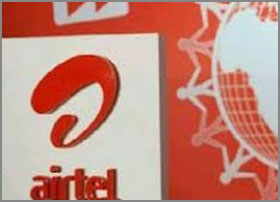 Bharti Airtel, the country's largest telco by revenue and customers, is planning its most significant restructuring by combining its Indian and African operations into a single business entity under a global CEO.
Bharti Airtel, the country's largest telco by revenue and customers, is planning its most significant restructuring by combining its Indian and African operations into a single business entity under a global CEO.
Manoj Kohli, the joint MD of Bharti and CEO of its African operations, could be the frontrunner to head the combined telecom business of the company across both continents in the new organisational structure that is likely to be in place by the first half of next year. Kohli has been the CEO of Bharti Airtel, and was sent to head the African business after the company acquired Zain's operations in that region in 2010.
The company is learnt to be looking at the option of elevating Gopal Vittal, who joined Bharti from Hindustan Unilever for the second time earlier this year as director (special projects), to a prominent role. People familiar with the mobile phone company's line of thinking say Vittal could head either its Indian or African operations, with Sanjay Kapoor, the current CEO of India and South Asia, heading the other territory. Vittal is currently spending a year in the Singapore and Australia operations of Sing-Tel, Bharti's largest shareholder.
At present, both Kohli and Kapoor report to Bharti Airtel Chairman Sunil Mittal. But under the new structure, the chief executives of India and Africa will report to the global CEO.
Company executives confirmed Bharti is working with leading consultants and headhunters to extend its 'One Airtel' concept to all geographies. But they said the contours of the 'mega restructuring' had not been finalised and cautioned it would be too early to speculate on the roles of top executives in the new structure. "The proposed structure will be discussed by the board early next year," said a person familiar with development.
Bharti Finished South Asia, India Rejig This Year
"A lot can change between now and next year both in terms of the structure and the people," said the person familiar with development. ABharti Airtel spokesperson said the company did not comment on speculation.
The world's fourth-largest telco by customers is currently organised into two separate units — India & South Asia, which accounts for 75% of revenues, and Africa, where it has operations in 17 countries. In August this year, Bharti finished executing the 'One Airtel' structure in India and South Asia.
The year-long exercise involved collapsing all its businesses and functions under two consumer heads. Implementing this across all geographies will enable the company create a new organisational structure that pivots around the consumer, not its many businesses.
Bharti insiders and consultants advising the company say the move towards 'One Airtel', which is aimed at bringing synergies and cutting costs, is also part of a larger game plan that will see Airtel's transformation from a voice-led business model to one that is oriented towards data and lifestyle offerings.
Eight years after pioneering the business strategy of outsourcing all key functions and building the 'minutes factory' model of low cost and high volumes, a concept that has since been copied, Bharti is searching for its next big thing. Its profitability has tumbled for 10 consecutive quarters, as it is under attack from competitors in India and Africa revival is taking longer than anticipated.
This August, a host of brokerages — including Morgan Stanley, Credit Suisse, Citigroup and Goldman Sachs — downgraded the Bharti stock, as it hit a six-year low during the same month.
The telco recently admitted for the first time that its loss-making African operations may not meet its target of $5 billion in revenues and $2 billion in core earnings, or EBITDA, for the year to March-end 2013. The new organisational structure may also see global heads of key functions such as marketing, IT, finance and sourcing & procurement reporting to the global CEO.The company has already taken the first steps in this direction.
Srikanth Balachander, its chief financial officer, has been overseeing this role for both the India and Africa businesses since mid-2011. Similarly, Bharat Bambawale, who joined Bharti late last year, has been elevated and designated its global brand director, while erstwhile IT head Jai Menon now heads global innovation. All these executives currently report to Mittal, but work closely with Kohli and Kapoor.
Another edge Kohli has is that he led Airtel's evolution in both India and Africa. After joining Airtel in 2002, he rose through the ranks to become its CEO in 2007, and was at the helm for the next three years, when the company registered record growth and profits and expanded its footprint to become a pan-India player. Kohli took over as the chief executive of Bharti's international business group in 2010 as the telco looked to expand to other continents.
He moved to Kenya a few months later to head Airtel's African operations after the Indian telco acquired the operations of Kuwait's Zain in that continent for an enterprise value of $10.7 billion. The 'One Airtel' concept will also see common teams driving its businesses in Africa and India.
When this structure was unveiled in India over the past 12 months ending August 2012, Bharti dismantled its traditional business model built around business verticals — mobile, fixed-line broadband, mobile broadband, DTH, and so on, each having a separate team with its own functional lines like marketing and HR — and re-organised these under two consumer heads: individuals and enterprises.